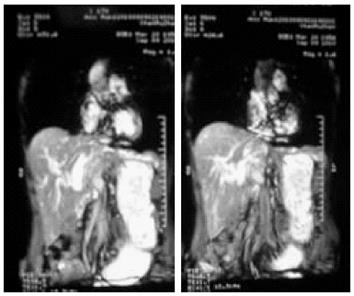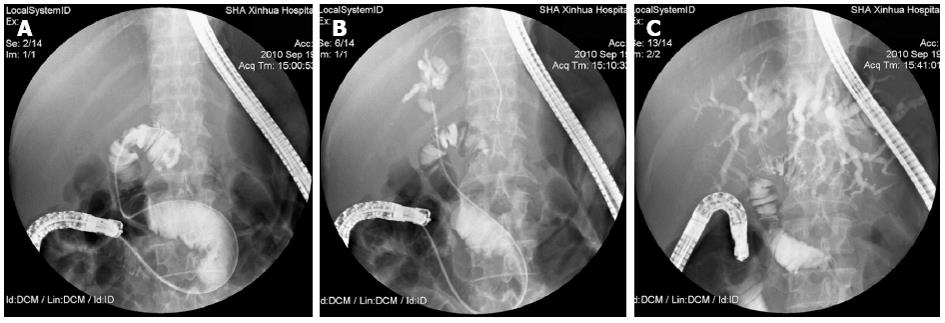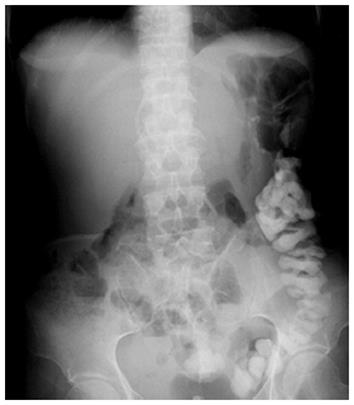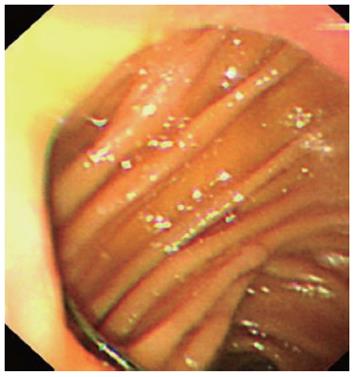Copyright
©2012 Baishideng Publishing Group Co.
World J Gastroenterol. Dec 21, 2012; 18(47): 7109-7112
Published online Dec 21, 2012. doi: 10.3748/wjg.v18.i47.7109
Published online Dec 21, 2012. doi: 10.3748/wjg.v18.i47.7109
Figure 1 Magnetic resonance imaging showed compressed anastomotic stoma.
Figure 2 The process of blind cannulation through the anastomotic stoma of hepaticojejunostomy followed by placement of a plastic stent.
A: The afferent loop was too long for the duodenoscope to reach the anastomotic stoma of hepaticojejunostomy; B: Successful cannulation into the intra hepatic bile duct with the help of the wire guided retrieval balloon catheter; C: A plastic stent was placed through the stenosis of the anastomotic stoma.
Figure 3 Five days after placement of biliary stent, X-ray of the biliary system showed the right position of the stent, and no contrast remained in the bile duct.
Figure 4 The “upper tunnel” was usually the exactly right afferent loop in post pancreaticoduodenectomy with child reconstruction.
- Citation: Zhuang M, Zhang WJ, Gu J, Liu YB, Wang XF. Retrieval-balloon-assisted enterography in post-pancreaticoduodenectomy endoscopic retrograde cholangiopancreatography. World J Gastroenterol 2012; 18(47): 7109-7112
- URL: https://www.wjgnet.com/1007-9327/full/v18/i47/7109.htm
- DOI: https://dx.doi.org/10.3748/wjg.v18.i47.7109












